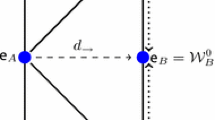Abstract
This paper is reversing the current belief on Quantum Bit Commitment. Several papers have claimed and given a formal proof that quantum bit commitment is impossible. Nevertheless, the hypotheses of the formal mathematical model are too restrictive and do not exhaustively reflect the original definition of the problem. They share the same unnecessary restriction that the responsibility of hiding information and committing to a bit value is attributed to the same communicating partner. The protocol described here fully abides to the original description of the bit commitment problem.The two communicating partners share responsibilities, one partner is mostly responsible for hiding information and the other one for committing to the bit value. The security of the protocol derives from quantum properties such as the unclonability of unknown states, the indistinguishability of non-orthogonal states and also from randomly discarding and permuting qubits. The protocol is safe from classical attacks and quantum attacks using entanglement. The level of security can be made arbitrarily large by using more qubits. This result opens the door for a whole set of cryptographic applications using bit commitment as a building block: remote coin tossing, zero-knowledge proofs and secure two-party computation.
Access this chapter
Tax calculation will be finalised at checkout
Purchases are for personal use only
Preview
Unable to display preview. Download preview PDF.
Similar content being viewed by others
References
Bennett, C.H., Brassard, G.: Quantum cryptography: Public key distribution and coin tossing. In: Proceedings of IEEE International Conference on Computers, Systems and Signal Processing, Bangalore, India, December, pp. 175–179. IEEE, New York (1984)
Brassard, G., Crépeau, C.: Quantum bit commitment and coin tossing protocols. In: Menezes, A., Vanstone, S.A. (eds.) CRYPTO 1990. LNCS, vol. 537, pp. 49–61. Springer, Heidelberg (1991)
Brassard, G., Crépeau, C.: 25 years of quantum cryptography. SIGACT News 27(3), 13–24 (1996)
Brassard, G., Crépeau, C., Jozsa, R., Langlois, D.: A quantum bit commitment scheme provably unbreakable by both parties. In: Proceedings of the 34th Annual IEEE Symposium on Foundations of Computer Science, pp. 362–371. IEEE Press (1993)
Crépeau, C.: What is going on with quantum bit commitment? In: Proceedings of Pragocrypt 1996: 1st International Conference on the Theory and Applications of Cryptology, Prague (October 1996)
Crépeau, C., Salvail, L.: Quantum oblivious mutual identification. In: Guillou, L.C., Quisquater, J.-J. (eds.) EUROCRYPT 1995. LNCS, vol. 921, pp. 133–146. Springer, Heidelberg (1995)
Kent, A.: Permanently secure quantum bit commitment protocol from a temporary computation bound (December 1997), los Alamos preprint archive, quant-ph/9712002
Lo, H.-K., Chau, H.F.: Is quantum bit commitment really possible? Physical Review Letters 78, 3410–3413 (1997)
Lunghi, T., Kaniewski, J., Bussières, F., Houlmann, R., Tomamichel, M., Kent, A., Gisin, N., Wehner, S., Zbinden, H.: Experimental bit commitment based on quantum communication and special relativity. Physical Review Letters 111, 180504 (2013)
Mayers, D.: Unconditionally secure quantum bit commitment is impossible. In: Fourth Workshop on Physics and Computation – PhysComp 1996, Boston (November 1996)
Mayers, D.: Unconditionally secure quantum bit commitment is impossible. Physical Review Letters 78, 3414–3417 (1997)
Ng, N.H.Y., Joshi, S.K., Ming, C.C., Kurtsiefer, C., Wehner, S.: Experimental implementation of bit commitment in the noisy-storage model. Nature Communications 3(1326) (December 27, 2012)
Author information
Authors and Affiliations
Editor information
Editors and Affiliations
Rights and permissions
Copyright information
© 2014 Springer International Publishing Switzerland
About this paper
Cite this paper
Nagy, N., Nagy, M. (2014). Unconditionally Secure Quantum Bit Commitment Protocol Based on Incomplete Information. In: Dediu, AH., Lozano, M., Martín-Vide, C. (eds) Theory and Practice of Natural Computing. TPNC 2014. Lecture Notes in Computer Science, vol 8890. Springer, Cham. https://doi.org/10.1007/978-3-319-13749-0_12
Download citation
DOI: https://doi.org/10.1007/978-3-319-13749-0_12
Publisher Name: Springer, Cham
Print ISBN: 978-3-319-13748-3
Online ISBN: 978-3-319-13749-0
eBook Packages: Computer ScienceComputer Science (R0)




